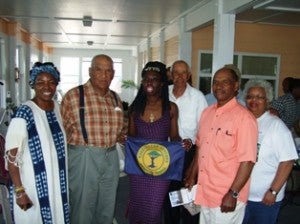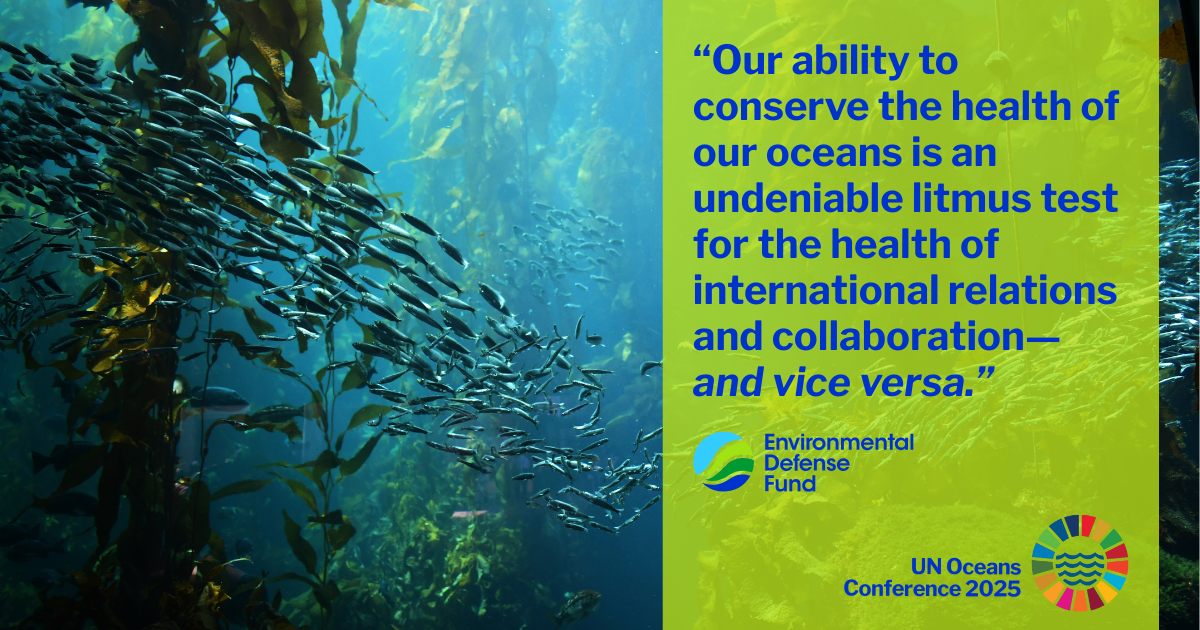Last Stop – Sea Breeze, NC

During the past few months the Gullah/Geechee Sea Island Coalition and EDF have held listening sessions with African-American fishermen in the South Atlantic – from South Carolina to Florida and Georgia. The sessions provided us with the opportunity to listen and document the concerns of these fishermen working in commercial and subsistence fisheries.
Our series of listening sessions concluded last weekend in Sea Breeze, North Carolina. Fitting of its name, Sea Breeze once hailed as a popular beach destination for African-Americans in the Wilmington area. Members of the community recollected that on any given Friday night, Sea Breeze was alive with the sound of music and smell of cooked seafood. Our gathering was certainly reminiscent of the past, as local fishermen gathered around a feast of fresh seafood to discuss the important role fishing has played in their lives and how that has changed over time.
Queen Quet, Chieftess of the Gullah/Geechee nation and founder of the Gullah/Geechee Sea Island Coalition, led the meeting of nearly 30 participants. Although many do not continue to fish today, everyone in the room indicated they used to fish at one point in their lives. “Fishing was natural because the whole family did it,” explained attendee Mrs. McQuillan.
Only four men in attendance still remain in the commercial fishing sector with the years of experience varied among them. Fishing partners Luther McQuillan and Joe Farrow have been fishing for 60 and 70 years – a way of life that began when they were mere children. According to the four fishermen, Southeastern staples like shrimp, oysters, clams, and crabs were some of the more sought-after fish, in addition to croaker, mullet, red drum, and whiting.
As native residents of Sea Breeze, NC, the attendees discussed witnessing and experiencing changes to their fishing community over the years. Like many coastal towns, Sea Breeze has undergone development, and unfortunately, development has come at the cost of an increasing loss in working waterfronts. There are no longer boat ramps in many locations forcing fishermen to travel farther to launch their boats. Numerous private docks have taken the place of boat ramps, which prevent the fishermen from catching clams. Since the docks are now private property, fishermen cannot attempt to catch clams in certain areas without trespassing. It also does not help that the markets that sold clams are closed today.
The fishermen echoed the same concern regarding limits as voiced in previous sessions – the restrictions are starving the fishermen and community. According to Mr. McQuillan, people could be making a good living from fishing, but now you have to throw fish back because of size limits. Once one could keep and sell fish that were 14-16 inches; now limits are at 20+ inches. High costs, low market prices, lack of notification for closures, and high levels of mercury and runoff rounded off the list of concerns shared by the group.
Barbara Jenkins, hostess of the event, observed that she hates to see young people not coming into the industry. Noting the lack of youth present, she believes someone needs to follow in the footsteps of the fishermen at the session. A participant stated that fishing among African-Americans in Sea Breeze is a valuable piece of history that he doesn’t want to see lost. He urged people to think about what they want to preserve about their history to pass on.
Queen Quet agreed, “This is not the end, this is just the beginning.” She informed the attendees of the regional fishing association the fishermen from the past listening sessions wish to create. The group was interested in joining such an association as well.
The concerns heard on Saturday and during the previous listening sessions have helped to shed light on the difficulties African-American fishermen are facing on the waterways. There is no question that African-Americans have had a stake in fisheries in the Southeast for years. Based on the remarks that were made, it is evident that they would like to protect and sustain their fishing heritage to pass on to future generations.












